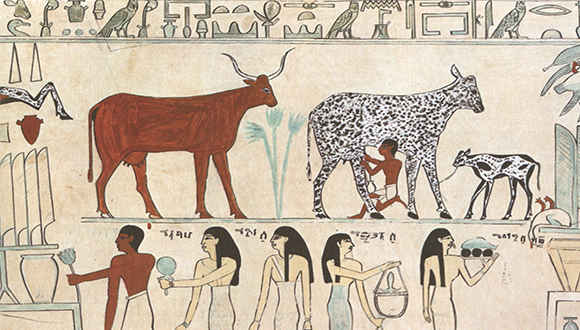Nothing can be understood without evolution…
This phrase is often repeated among biologists, but it is time for non-biologists to recognize the truth of this statement. In the opening session of this year's course at the Institute of Catalan Studies, Jordi Casanova explained that in the light of modern knowledge, we humans are animals, considering not only in our biology (an obvious fact) but also our behavior. Many studies, mostly on apes, have shown the existence of feelings such as jealousy, envy, a sense of for injustice, rebellion; to these I would add empathy, defense of hierarchy, and a wish power.

The evolutions of socialization and the brain have led to these kinds of behaviors. Omnivory and sociability contributed to the evolutionary shaping of manual and mental abilities needed for manipulating resources of different sizes and characteristics, for communication, and for tool-making. These amazing skills arose from evolution, allowing us to inhabit almost any natural environment, but it is also clear that aggressiveness, territorialism, envy and jealousy form a substantial (and less flattering) part of our evolutionary heritage.
If we consider evolution from a wider standpoint than that of population genetics, we see that evolution has occurred, and still occurs, in a context of interactions with the physical environment and with other organisms, including with other humans (see my book Notícias sobre evolución, published online). The development of culture is not independent from biological evolution but rather a consequence of it, and culture in turn also interacts with biology.
We think locally and we act globally, we don’t feel much emotion about the global repercussions of our actions.
Human societies transform the physical environment more than ever done by any species, and we integrate the control of other species (including their reproduction and evolution) for use as a food supply, for pleasure, or for company. Human societies also create a multitude of devices: prosthetics, drugs, and vaccines all interfere with the selection process, and we mention these without even considering the manipulation of genetics! Culture, a product of the biological evolution, thus becomes a driver of biological evolution. This gives way to a future full of possibilities, some hopeful, others disturbing; our animal essence precludes expectations of idyllic use of new knowledge and techniques.
Our relationship with the environment will condition the future of the species. We are able to colonize any habitat on Earth, we multiply like a plague, we use vast amounts of energy, and have the know-how to transform the world. We act according to emotions that are not very different from those of chimpanzees. We think locally and we act globally, although we don’t experience much emotion about the global repercussions of our actions (at least as long as our status is preserved within our own group, constituting a very small fraction of Mankind). This is a dangerous attitude, because global change is a menace to us all.
This is where we stand. As Edward O. Wilson once responded to me, we may only (potentially) expect a reaction of collective solidarity in the hypothetical case of alien invasion. In this case, with current growth rates of both population and technology as never seen before, and a brutal degradation of planetary life-support systems, what can be done? The first step is to understand ourselves from an evolutionary perspective, as a product of Nature, and as part of Earth’s ecosystems. We need to understand what causes empathetic or criminal behavior, what makes a well-adapted person (or group) compared to one haunted by an unsatisfied wish for wealth and power, a resource conservationist or an exploiter…

Today, neurosciences, molecular biology and ecology are essential for building wisdom – or philosophy, as one might have it – and ethics, which will help change the current dangerous trends of economics and other social sciences. Today, for Mankind, the motto "know yourself" requires that we understand the interplay between biological evolution and socio-cultural change which has produced human animals. Today, ecology should help us understand how life support systems work so that we may learn from them (as I argued in this blog on October 1th).
It is essential that we find a way for messages on global risks to arrive and endure in minds that are not prepared for identifying themselves as members of a group, which in this case includes all humans and the whole planet. So far, we have not achieved this aim (see my my comment on environmental education in this blog). If we are much more emotional than rational then progress in understanding ourselves, the world, and our position within the Biosphere will have to advance both along emotional and rational paths. Only considerable increases in both rational and emotional understanding will offer the possibility of a safer future.







